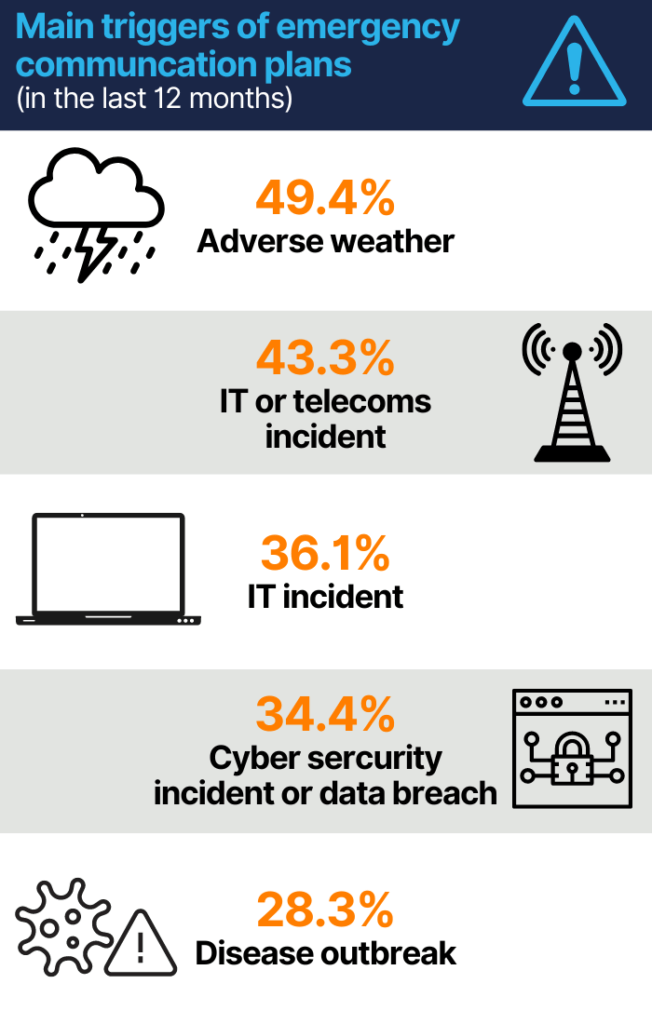Benjamin Jansen, Senior Vice President Sales ENS/CM at F24, shares his insights on the newly published BCI Emergency & Crisis Communications Report 2023 in this commentary.
Take Crisis Management Actively into your own Hands!
Earlier this year, a global ransomware cyberattack hit institutions and businesses, affecting around 84,000 servers worldwide, with 7,000 of those in Germany alone. Although the security vulnerability had already been identified and fixed, companies had to take care of their own software updates. The attack had varying degrees of impact, but it highlights the importance of effective crisis and risk management being a continuous effort rather than a quick fix.
The BCI Emergency & Crisis Communications Report 2023, which was released in February, reveals that many companies have already recognized the importance of effective crisis and risk management. F24 sponsored the report, and the Business Continuity Institute (BCI) surveyed various organizations on their emergency communication strategies. The survey indicated that flexibility and availability are essential requirements, with 81% of the organizations surveyed using a SaaS solution for emergency communications. The report highlights that digital crisis management solutions result in faster response times and the activation of crisis communication plans. Organizations that use digital tools were able to activate their emergency communication plans within five minutes, which was a significant improvement compared to those that did not use digital tools. Only 7% of organizations that didn’t use digital tools were able to activate their emergency communication plans within five minutes, whereas 33% of organizations using digital tools could do so, a difference of 26 percentage points.

SaaS solutions score points
The data from the BCI Report 2023 makes it clear that SaaS solutions are a reliable and effective option for crisis and emergency management. These solutions are considered the gold standard as they ensure fast and secure communication and enable team coordination even during an emergency. Additionally, they offer various technical interfaces that can be seamlessly integrated with third-party systems, communication channels, or facilities. Digital crisis management solutions use comprehensive crisis monitoring to trigger automated alerting and activate predefined actions for a given scenario. Moreover, they can be customized to specific scenarios, which is particularly advantageous because IT or telecommunication incidents are not the only triggers for emergency communication plans. Adverse weather conditions and disease outbreaks also pose significant risks to companies.


The report’s findings are encouraging as they demonstrate that more business leaders are implementing crisis management solutions early on to ensure the resilience of their operations. A record 70% of companies now rely on digital solutions, and with regular emergency training, they can act quickly during crises and minimize downtime and other business damage.

Written by Benjamin Jansen, Senior Vice President Sales ENS/CM at F24
Benjamin Jansen is Senior Vice President Sales ENS/CM at F24 and responsible for the global sales activities of F24’s alerting and crisis management solutions. Having held various management positions in sales for over 23 years and having worked for companies such as T-Systems, Nemetschek Group, SELLBYTEL Group GmbH, and KONUX, he has acquired extensive international experience in SaaS solutions, IoT, and cloud technology.


